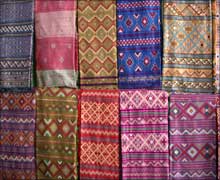Cut in TUFS scheme allocation is a major negative while extension of interest subvention for another year is positive; one time grant for TN govt, skill development initiative augurs well.
 Union Budget has given lukewarm response for the recommendations of Textile Industry. Although some perks have benefited the garment industry by the government, the all round budget impact was not up to the mark. Some of the provisions in the budget that could have a direct and indirect bearing on the textile and clothing industry are as follows-
Union Budget has given lukewarm response for the recommendations of Textile Industry. Although some perks have benefited the garment industry by the government, the all round budget impact was not up to the mark. Some of the provisions in the budget that could have a direct and indirect bearing on the textile and clothing industry are as follows-
Budget provisions
- The government has decreased the Technology Up gradation Funds for the textile industry by 22% to Rs 2267.50 crore (Rs 22.67 billion) for 2010/11 as against Rs 2890 crore (Rs 28.9 billion) in the corresponding previous year.
- The fund allocation for Cotton Technology Mission has been substantially increased by 182% to Rs 141 crore (Rs 1.41 billion) in 2010/11.
- The government has allocated Rs 350 crore (Rs 3.5 billion), an increase of 32%, for the schemes for integrated textile parks for 2010/11 as against Rs 265 crore (Rs 2.65 billion) in the revised budget 2009/10.
- As the domestic cotton prices were hovering in line with the international prices, the Government has reduced the non plan expenditure for CCI sharply by 62% to Rs 244 crore (Rs 2.44 billion) in 2010/11 as against Rs 635 crore (Rs 6.35 billion) in revised budget of 2009/10.
- Extension of interest subvention of 2% for one more year i.e, until March 31, 2011, for exports covering handicrafts, carpets, handlooms.
- So as to sustain knitwear industry, the government has also proposed one-time grant of Rs 200 crore (Rs 2 billion) to the government of Tamil Nadu towards the cost of installation of a zero liquid discharge system at Tirupur.
- The textile Industry was also granted to launch an extensive skill development programme by leveraging the strength of existing institutions and instruments of the textile ministry to train 30 lakh (3 million) persons over 5 years.
- Outright exemption from special additional duty was provided on imported ready-made garments, even when they are not imported in pre-packaged form.
- So as to boost the research and development (R&D) activity, weighted deduction on expenditure incurred on in-house R&D has been enhanced from 150% to 200%.
- The government has increased Minimum Alternate Tax (MAT) from the current rate of 15% to 18% of book profits.
- The Current surcharge of 10% on domestic companies has been reduced to 7.5%.
- The Government has proposed to introduce GST and DTC w.e.f 1 April 2011.
Budget impact
The decline in the TUFS assistance is a major negative for the textile sector. At a time when arrears of TUFS benefits were high, and as the industry was expecting hike in TUFS allocation, there has been a decline, affecting the industry significantly.
The demand on extension of 2% interest subvention on exports till March 2011 was partially met as the Government has given it only to handlooms, carpets and handicrafts.
On the flip side, the industry demand of abolishing excise duty on man made fibers, filaments and their raw materials, has not been met; which will curtail competitiveness of the man made fibers. Further, increase in the MAT to 18% will have a negative impact on textile firms, as very few companies enjoy profit making, given the tough scenario.
Stock to watch
Raymond, Alok Industries, K P R Mill, Koutons Retail etc
Outlook
The Budget has left an impression that the textile industry has successfully recovered from the impact of global economic melt down and thus has also decreased the TUFS assistance for the industry when compared to the corresponding previous year.
While garment industry has some cheers as some of its recommendations in their wish list were granted, the man made fiber industry has no thumps up. Overall the entire outlook is neutral with a negative bias.





